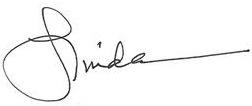Summer has settled in around us, and most of us are not on the beach with our books this year. However, a book can certainly be a welcome respite from these stultifying weeks of COVID shutdown. Nothing can take you further out of your own world than a book—or more deeply into an unexplored part of your heart.
Sometimes we get bored with our own ideas as to what to pick up next, and so may welcome a little fresh input. I know I rely hard on my Book Group’s choices to find new ideas. Here are a few suggestions for the tail end of July, the juicy month of August and then even a tiptoe into the fall. This time around all my suggestions are fiction. Somehow submerging myself deep into my imagination feels especially appealing right now.
The Nickel Boys// Colson Whitehead
Colson Whitehead’s The Nickel Boys needs neither introduction nor recommendation. It won the Pulitzer in 2020, hit the bestseller lists across the country, and was hailed with innumerable prizes and enthusiastic praise. Set in Tallahassee in the 1960’s, the novel veers between the idealism of Martin Luther King and the terrible rampages of Jim Crow, all seen through the eyes of two young black boys as they struggle to survive—both in body and in character—their stay in a boy’s reform school. The book is based on a real story of just such a place, which operated for over a century, affecting the lives of thousands of children.
As grim as The Nickel Boys can be, however, it is also uplifting: ultimately, it becomes a story of surprising friendship, as well as a testament to human perseverance, dignity and redemption. While never an easy read, it is nevertheless an extremely rewarding one—a book especially for the times we live in.
Publisher’s Weekly: “Whitehead’s brilliant examination of America’s history of violence is a stunning novel of impeccable language and startling insight.”
The Little Friend// Donna Tartt
Remember Donna Tartt’s The Goldfinch, which won the Pulitzer in 2014? If your answer is an enthusiastic “yes,” here is another effort from Tartt you will love—just in case you missed it when it came out in 2002. Her second novel, The Little Friend, which preceded The Goldfinch by eleven years, holds the reader just as tightly in its grip. Tartt give us a grandly ambitious and utterly riveting novel of childhood, innocence and evil.
The Little Friend holds the reader firmly pinned to the chair as it sets the scene with the drama of a little boy’s murder: he is found hanging from a tree in his parent’s yard in Alexandria, Mississippi, but his murder remains unsolved until his twelve-year-old sister, Harriet—unnervingly bright and insufferably determined—decides she is going to unmask the killer and deal with him herself.
Crossing the southern town’s rigid lines of race and caste, Harriet burrows deep into her family’s history of loss and surfaces with a basketful of amazing hairpin swoops and spins for the plotline. Humorous, heart-breaking and very scary, this is one book that you won’t fall asleep while reading before bedtime. The climax is stunning and you won’t be sorry you picked the novel up—you’ll only be sorry that you are closing its cover.
The New York Times Book Review says: “The Little Friend seems destined to become a special kind of classic…It grips you like a fairy tale, but denies you the consoling assurance that it’s all just make-believe.”
I don’t read too much historical fiction, but when I discover a novel using history as its backdrop in a surprising way, I gobble it right down. This describes my voracious appetite for White Houses, a fictional treatment based on the reality of a secret relationship between Eleanor Roosevelt and Lorena Hickok.
Hickok was a frank, straight-arrow reporter from South Dakota, who came into Eleanor’s life when the two Roosevelts moved into the White House in 1933. The relationship that developed between “Hick” and Eleanor became passionate and sexual, and shaped both the clear-eyed reporter and the saint-like First Lady for the rest of their lives. The novel is told from Hick’s point of view, which springs from her own background of poverty, contrasting sharply against the privilege and power the White House embodies.
The very subtle, very tender love between the two women is backlit by back-room politics, as well as secrets and scandals of the era. Sensuous, captivating and forbidden—their passion shines through politics on every page. Bloom adroitly weaves historical truth with imagination and so both these remarkable soul mates shine from the page.
The Boston Globe says this: “Profoundly affecting . . . Bloom’s Hick is frank, funny, and irreverent. . . . White Houses, by seeing the Roosevelt era through the most unlikely of outsiders-turned-insider, brings a hidden chapter of East Wing history to life.”
Pick up an iced tea and have at it!
Yours,

Have a comment or feedback? Talk to Linda!




